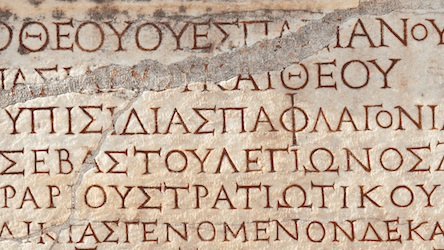
Greek. An Indo-European language, constituting an independent branch of it, native to Greece, Cyprus, Italy, southern Albania, and other regions of the Balkans, Caucasus, the Black Sea coast, Asia Minor, and the Eastern Mediterranean.
The Hellenic language is 3,400 years old. The ancient Greeks were the first to use an alphabet consisting of both vowels and consonants. Many important works of world literature and philosophical writings were written in Greek, such as Homer, Aeschylus, Euripides, Sophocles, Plato, and Aristotle.
It is estimated that 30% of all words in the English language have a direct Greek origin: Antique, architect, acrobat, biology, cinema, cemetery, democracy, dinosaur, drama, energy, Europe, economy, encyclopedia, galaxy, geography, grammar, harmony, history, hour, idea, idiot, kilometer, mega, music, ocean, organism, philosophy, photography, planet, stereo, symbol, system, theater, tragedy, telephone, telescope, zone, and zoo, just to name a few.
Greek words are also used in the fields of science, mathematics, astrology, geology, technology, and medicine.
The Greek written and spoken today is called Modern Greek. It is the official language in Greece and Cyprus and is one of the 24 official languages of the European Union. Together with the immigrant Greeks and Cypriots, over 13 million people worldwide speak Greek as their mother tongue.
Ancient Greek, like Latin, is now one of the dead languages and is mainly used as a language of education in the fields of philosophy, science, history, poetry, medicine, and theology.